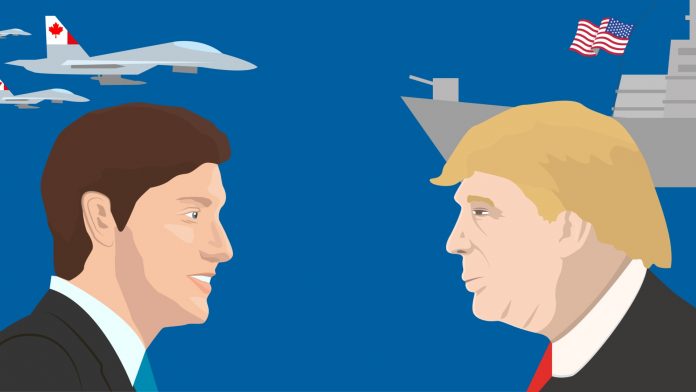The 5,500 mile Canadian-US border now closed to “non-essential” travel due to COVID-19 outbreak and spread. Both leaders agree this decision was mutual Trudeau vowed to ensure smooth flow of goods and essential materials and essential materials between two countries.
On March 18, Presidents Trump and Trudeau of the US and Canada respectively announces their mutual decision to close the world’s longest undefended border, 5,500 miles, to all “non-essential” travel due to the peril of COVID-19. Both leaders emphasized that this border closure would not impact trade.
Trudeau “vowed to ensure the smooth flow of goods and essential materials and medication” between the two countries. He also said that border restrictions “will last in place as long as we feel that they need to last…and again closely coordinate on that as well.”
Canada has announced (March 18) 600 confirmed cases of COVID with at least 8 deaths. The US has confirmed (as of March 18) more than 6,400 cases and more than 110 deaths with patients in all 50 states and the District of Columbia. John Hopkins is the recipient of all such data.)
As nearly 200,000 people cross this border daily, Trudeau exempted US citizens and Canadian citizens and permanent residents from this border closure. Additionally, US trade in goods with Canada exceeded $600B in 2019.
This border closing is similar to this week’s decision by the European Union to temporarily ban foreign travelers.
Thanks to The Washington Post for content sources and data.

























